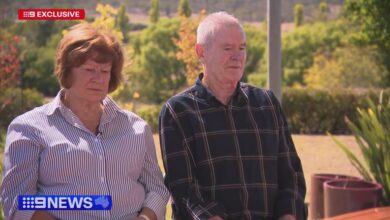Asking the right questions
Dying is not an easy topic for discussion but the conversation needs to take place.
Palliative care needs to be embedded in undergraduate training of health professionals to improve the quality of care when dying, says an expert.
Dying is not an easy topic for discussion, even for nurses and other health professionals who can see death every working day. But no matter how difficult it may be to speak about, its importance is far greater and talking about it needs to become more common.
“We constantly avoid the conversation while recognising that everyone will at some point die,” said Patsy Yates, vice president of Palliative Care Australia (PCA) and a professor at QUT’s School of Nursing and Midwifery.
Almost two in three Australians believe death and dying isn’t discussed enough in the community, according to a survey of 1000 residents released by PCA.
“Hospitals and health workers are in the business of treating people, whether that is making them healthier or managing pain, that the actual issue of dying is often overlooked,” Yates said.
“Everyone deserves quality care at that time. To make that a reality, people need to chat about dying to their loved ones and caregivers, and nurses and doctors need to be asking the right questions. Unfortunately this survey shows this is just not happening.”
When asked about the end of their lives, just 32 per cent of respondents to the survey said they had discussed their preferences with their loved ones. “Not surprisingly, the people most likely to have discussed their preferences were those aged 65+ (51 per cent) and those with adult children (41 per cent).”
“That this is nowhere near enough. When a loved one is dying, it’s often a very difficult, emotional period. Understanding clearly what your loved one wants at this time – for instance whether they would like to die at home, or what pain relief they can access –makes decision making much simpler during a very stressful period.”
Nurses are in a pivotal role of making sure a person’s wishes were understood, Yates said.
“It’s not just the responsibility and role of those working in palliative care, but in all areas. Understandably, it can be uncomfortable for many people to bring up the topic of dying with their patients, but making sure their wishes are known is so important. It can’t be underestimated.”
In the past years there has been an increased focus on training health students in palliative care, and Yates said that needed to be embedded in undergraduate courses.
“I have made the point before, but it is such an important one – this type of care is not just the business of palliative care workers. It’s essential that all health professionals have the right training to provide this important care.
The survey also asked people where they would prefer to die. Forty-four per cent haven’t thought about it, and of those who had considered it, some 74 per cent said they wanted to die at home.
This is consistent with overseas findings but contrasts sharply with the reality.
“We know that the number of people who die at home in Australia has actually decreased over the past 50 years. Now only about 16 per cent of people die at home, 20 per cent die in hospices and 10 per cent in nursing homes. The rest die in hospitals.”
Yates said while many people carefully prepare financially for dying through wills and estate planning, and even plan and pay for their funerals, few take the time to plan for the process of dying and the type of care they wish for.
Email: [email protected]





